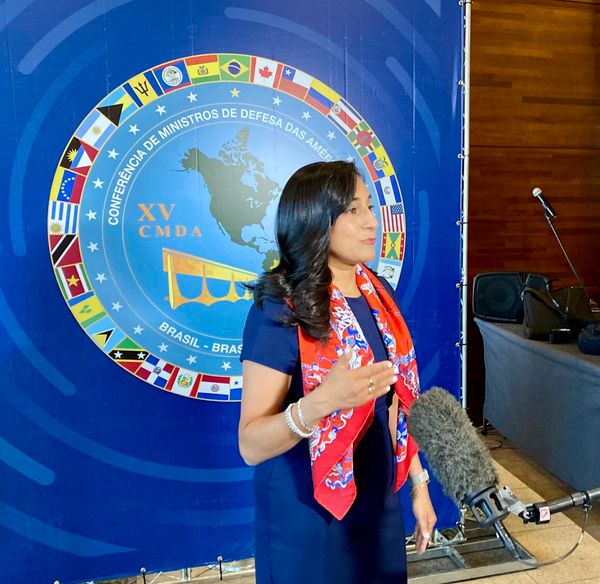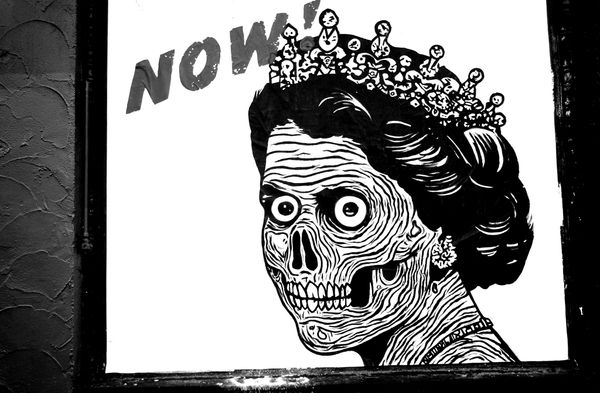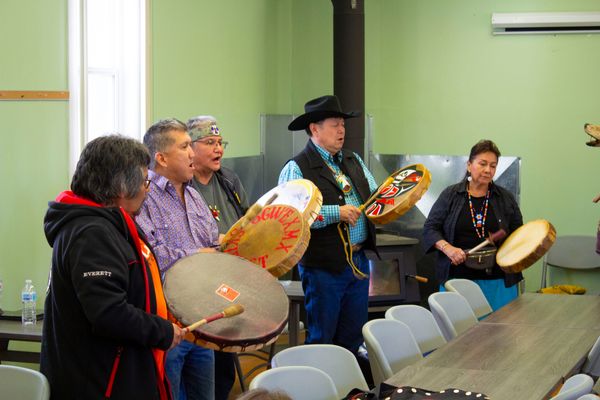On June 25, the Canadian government announced that it awarded WE Charity the right to administer a $900 million student grant program.
Questions about potential conflict of interest were immediately raised by the public and media due to the fact that Prime Minister Justin Trudeau’s wife, Sophie Grégoire-Trudeau, was a prominent volunteer for the organization. By early July, the controversy became a full-scale scandal after investigative reporting by Canadaland led WE to admit that hundreds of thousands of dollars had been paid to Trudeau’s mother and brother for speaking at events hosted by the charity.
The Canadian public has since learned a great deal about WE Charity’s structure and practices, especially from the hours of testimony heard by the House of Commons Standing Committee on Finance.
Greg Thomson, director of research for Charity Intelligence, told the committee that WE Charity is part of “a highly complex international network of WE-related entities,” and raised concerns about undisclosed real estate transactions.
Canadaland publisher Jesse Brown highlighted “the misuse of charitable funds by WE charity” for the committee, and shared troubling details about the organization’s work culture.
Michelle Douglas, the former chair of WE Charity’s board, expressed dismay at the lack of financial transparency within the organization.
Marc and Craig Kielburger, WE Charity’s co-founders, also took part in a grueling four-hour session with the committee in which they provided half-apologies alongside evasive answers to the questions they were asked.
With the WE scandal dominating headlines, Trudeau’s approval ratings have taken a hit. But the prime minister is, by now, quite adept at weathering scandals. His political fortunes will likely not be overly strained by the ongoing controversy.
The same can’t be said for WE Charity. The organization and its founders will have a difficult time recovering from the setbacks the scandal has forced upon them. In all likelihood, we’re witnessing the implosion of one of the most recognizable charities in the country.
The revelations that have emerged about WE may allow some to conclude that the organization is deserving of what seems to be its fate. Yet looking beyond WE, we’d be gravely remiss to not connect the charity’s trajectory to troubling broader patterns within the nonprofit sector.
The story of WE’s origins is one that millions of Canadians have likely heard. In 1995, when he was 12 years old, Craig Kielburger happened to come across an article in the Toronto Star about Iqbal Masih, a 12-year-old Pakistani former child slave who’d been murdered for his human rights activism. Horrified and angered by Iqbal’s story, Craig gathered some of his classmates and created a children’s rights advocacy group called Free the Children.
That same year, Craig travelled to South Asia with a family friend and interviewed numerous children who spent their lives as bonded labourers at brick kilns and factories. Describing the impact the experience had on him in a 1999 book Free the Children, he wrote:
Shortly after my return to Canada, a newspaper quoted me as saying, ‘I divide my life into pre-Asia and post-Asia.’ I still do. The trip had a profound effect on me, one that changed me forever. I would spread the word about the suffering of all the children I had met. I would let the world know that we, too, are part of the problem. I would not fail them.
Today, 25 years after its founding, Free the Children has been rebranded as WE and has an annual revenue of $60 million. It has operations spanning five continents, including aid and development projects in several countries in the Global South. Craig is also now accustomed to rubbing shoulders with political and business elites. The boy who’d committed himself to fighting on behalf of child labourers has become a man who prattles about the virtues of “social entrepreneurship.”
In WEconomy, a 2018 book co-authored with his brother Marc and Holly Branson (daughter of British billionaire, Richard Branson), Craig enthuses about the need to “harness the potential of purpose and profit” to create social change. Harnessing the potential of neoliberal-speak, he writes, “Charities and social enterprises can learn from certain corporations that have built models to exponentially scale positive change, leveraged technology as accelerators, and driven massive innovation to transform our daily lives.”
Kielburger’s transformation, while disheartening, isn’t particularly difficult to understand. The incentive structure within the non-profit sector makes this sort of change nearly inevitable. Simply put, in order to get funding, organizations like WE are often required to kowtow before the rich and powerful. The ramifications of this dynamic can be seen across the sector, and have been known for some time.
As the Montreal-based activists Nikolas Barry-Shaw and Dru Oja Jay outline in their 2012 book Paved with Good Intentions: Canada’s Development NGOs from Idealism to Imperialism, non-profit organizations tend to be accountable not to the people they claim to be assisting but to their donors. It’s therefore not surprising that organizations like WE learn to speak in ways that are pleasing to the ears of those who have deep pockets. In our day, this means celebrating the neoliberal ethos of free markets and uncritically highlighting the value of business acumen.
It can be a rather disorienting experience to run into Western aid and development workers in some remote corner of the Global South and find them aping the vocabulary of Silicon Valley tech bros: “innovation,” “scaling positive change,” “leveraging markets and technology.” These people seem to think that staying up to date with the latest issue of the Harvard Business Review is more important to their work than understanding the local contexts in which they are operating. But this is easier to understand after considering that USAID, Global Affairs Canada and the Gates Foundation are major sources of funding for international development projects.
Cozying up to the powerful is justified under the pretence that doing so will allow non-profit organizations to influence those with wealth and privilege. The opposite, of course, ends up being the case, as tying their fortunes to the generosity of powerful non-profit organizations makes them beholden to forces they should be working to oppose.
Aid and development organizations also find neoliberal rhetoric to their liking because it helps them justify why they, not governments, should be providing essential services in the Global South. Governments are written off as inefficient, ideological and irredeemably corrupt. By contrast, unelected and unaccountable aid and development workers cast themselves as impartial experts who know exactly what is needed and how it should be delivered.
This leads to dismal and sometimes outright disastrous results. While non-profits may claim they improve the lives of the poor, their overall impact on poverty reduction and development is difficult to ascertain. What we do know with certainty is that the presence of large numbers of non-profit organizations in a country is not an indication that conditions are going to improve. Haiti, for instance, simultaneously happens to be the poorest country in the Western hemisphere and hosts the second largest number of aid and development organizations in the world on a per-capita basis.
There are thousands of charitable groups in Haiti — including WE Charity — doing what they describe as “development work.” Yet the country is clearly not developing. In 2011, out of a total of 187 countries, Haiti ranked 158 on the United Nations Development Programme’s Human Development Index. As of last year, Haiti had slipped down to 169, placing it just above war-torn Afghanistan. In the broad scheme of things, it’s likely the case that, rather than being helpful, the presence of large numbers of charitable organizations in Haiti is a hindrance to the country’s ability to achieve development.
For development and sustained poverty reduction to take place, state institutions and capacities must be built. This can be difficult to do in a context where non-profit organizations have created numerous overlapping networks of service provision. Moreover, these organizations often poach competent personnel who could otherwise be employed by the state. As one United States government agency points out, non-profits “are able to out-recruit the Haitian government by offering higher wages, benefits and better working conditions. The best-educated Haitians were often enticed away from working for the government, practically immobilizing an already-demoralized bureaucracy.”
It makes sense that Haiti would have a demoralized bureaucracy given the political turmoil that the country has seen in its recent history, which nonprofits have made worse. As York University’s Justin Podur highlights in Haiti’s New Dictatorship: The Coup, the Earthquake and the UN Occupation, non-profit organizations based in Haiti played a role in undermining the legitimacy of the democratically elected government of Jean-Bertrand Aristide. Podur writes that Aristide could be overthrown in a right-wing coup in 2004 in part because “U.S. and Canadian-funded NGOs made and repeated false claims about the Aristide government’s human rights violations.”
In a sense, then, the WE Charity scandal is a case of the chickens coming home to roost: A non-profit organization known for its aid and development work in the Global South is helping to create political turmoil here in Canada.
Also noteworthy is Trudeau’s insistence that the government had no way to deliver the student grant program that WE was commissioned to administer. The idea that the state should back off from its role as a service provider and let nonprofits handle things is routinely forced upon countries in the Global South. It turns out we’re perfectly capable of forcing it upon ourselves as well.







Member discussion